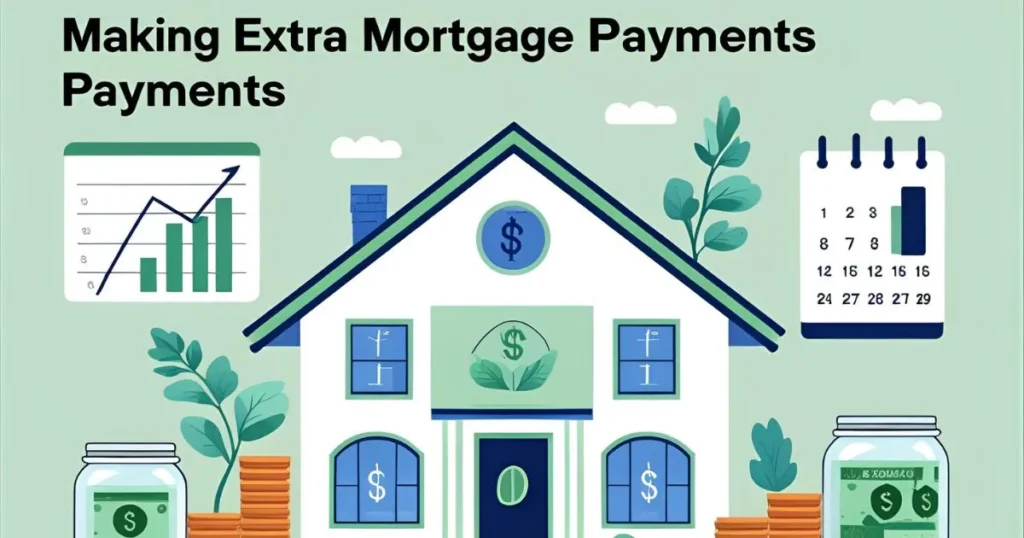Owning a home is one of the biggest financial goals for many families. But did you know that simply adding extra payments to your mortgage can save you thousands of dollars in interest and shorten your loan term by years?
In this article, we’ll explain how extra mortgage payments work, why they matter, and how you can start making them today.
What Are Extra Mortgage Payments?
An extra mortgage payment means paying more than your required monthly amount. This could be a small additional payment every month, a biweekly payment schedule, or even lump-sum contributions.
The key benefit is that these extra payments go directly toward your loan principal, which reduces the total balance faster. As a result, your interest charges decrease over time.
Why Extra Payments Save You Money
- Reduce Interest Costs
Interest on a mortgage is calculated on the remaining principal balance. By lowering the principal early, you reduce the total interest paid over the life of the loan. - Pay Off Your Loan Faster
Adding even small extra payments can help you shave years off a 30-year mortgage. This means you can become debt-free much sooner. - Build Equity Quicker
Extra payments also increase your home equity faster. More equity means more financial flexibility if you decide to refinance or sell your home.
👉 Want to see exactly how much you could save? Try our Free Mortgage Payoff Calculator.
Examples of How Extra Payments Work
- Example 1: If you have a $250,000 mortgage at 5% interest for 30 years, your monthly payment is about $1,342.
- Adding just $100 extra each month could save you over $30,000 in interest and shorten your loan term by 5 years.
- Adding just $100 extra each month could save you over $30,000 in interest and shorten your loan term by 5 years.
- Example 2: Switching to biweekly payments (26 half-payments per year) creates one extra full payment annually. This small adjustment can cut years off your mortgage without a major budget change.
Different Ways to Make Extra Payments
1. Monthly Extra Payments
Add a fixed amount each month, like $50–$200.
2. Biweekly Payments
Split your mortgage into half-payments every two weeks instead of once a month.
3. Lump-Sum Payments
Use bonuses, tax refunds, or side income to make one-time large payments directly to your principal.
4. Rounding Up Payments
If your mortgage is $1,342, round it up to $1,400. That extra $58 per month adds up over time.
Read Also: 5 Smart Ways to Pay Off Your Mortgage Early | Free Calculator
Common Mistakes to Avoid
- ❌ Not specifying payments should go toward the principal. (Always tell your lender to apply extra payments directly to principal).
- ❌ Draining your emergency savings to pay off your mortgage too aggressively.
- ❌ Ignoring higher-interest debts like credit cards always tackle those first before making large extra mortgage payments.
FAQs About Extra Mortgage Payments
Q: Do all lenders allow extra mortgage payments?
A: Most lenders do, but always check for prepayment penalties before making additional payments.
Q: Is it better to pay extra on mortgage or invest?
A: It depends on your financial goals. If your mortgage rate is higher than average investment returns, paying it down early may save more.
Q: Can I switch to biweekly payments anytime?
A: Many lenders allow it, or you can set up automatic payments through your bank.
Final Thoughts
Making extra mortgage payments is one of the smartest financial moves you can make. It reduces your loan balance faster, cuts down interest costs, builds equity, and helps you reach financial freedom years earlier.
👉 Take control of your mortgage today. Use our Free Mortgage Payoff Calculator to see how small changes can lead to big savings.

Hi! I’m Lauren Reynolds – I focus on spreading joy and peace with weekly blessings designed to guide you through the ups and downs of each day, from Monday to Sunday, on blessingzings.com.



